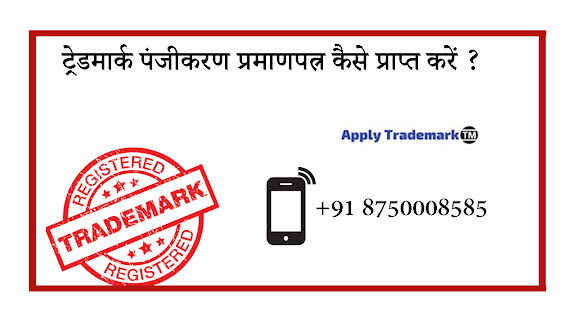Is GST required for small business?
Before starting any business, a person should familiarize himself with the pertinent laws and regulations around their line of business. Additionally, this includes any taxes that their company might have to pay. The Goods and Services Tax, which was implemented in 2017, intends to assist small businesses by replacing the intricate center and state taxing systems with a straightforward, unified one. You must be completely knowledgeable about GST registration for small businesses if you are planning to start a new firm. All small enterprises must register for GST since the GST Act requires them to. This article therefore explains whether GST is also necessary for small businesses. A Goods and Services Tax Identification Number (GSTIN), which is used to track tax payments and outstanding balances, is given to the business owner upon GST filing. Therefore, if you are unsure of the benefits that the GST will give you, speak with a member of the legalraasta consultancy team.
Need for GSTIN to run the small business in India.
Ø According to the GST Act, if your
annual financial revenue exceeds Rs. 40 lakhs, you must register for GST. The GST Registration cap is Rs 10 lakhs
for states in the northeast and hill states.
Ø A single or indirect tax levied by
the Indian government is known as the GST (Goods and Services Tax). The government
levies GST if you operate any kind of internet business or offer services like
those at hotels, restaurants, shops, factories, etc. Every business owner who
files a GST return receives a Goods and Services Tax Identification Number
(GSTIN) or GST Number.
Ø Each person who registers is given a
"unique identification number." Tax identification numbers assist
income tax authorities in keeping track of GST payments and dues. No company or
corporation may operate without first registering with the GST. Inaccurate GST
Returns entries result in penalties in addition to the input tax credit being
rejected. Take our legal advisor's assistance to avoid submitting an incorrect
or incomplete GST registration.
Why Should Small Businesses Choose GST Registration?
Ø Unified taxation: The introduction of the GST has
resulted in the elimination of a number of indirect taxes, including the
service tax, VAT, and excise duty. This implies that small business owners are
no longer required to pay taxes on taxes.
Ø Composite tax structure: Any company with a yearly revenue of
more than Rs. 75 lakhs is eligible to pay a flat tax of 1% to 5%.
Ø Costs associated with transportation: The GST has decreased taxes
associated with the interstate movement of commodities. This lowers the overall
cost of purchasing raw ingredients and shipping the finished good.
Ø Credibility: Getting a GST Registration might help a small firm seem more credible to
larger businesses who are interested in working with it. These companies can
even file their returns on a quarterly basis and are spared from dealing with
pointless compliances.
Ø Simple credit access: By complying with GST laws, you have
a better chance of getting business loans at favourable interest rates. This
occurs as a result of the operations' registration with a government body and
the decreased likelihood of fraudulent activity.
Documents Needed for Small Business GST Registration
Ø Photos of the owners the size of a
passport.
Ø PAN card for the business.
Ø Aadhaar cards, passports, or driver's
licences serve as identity documents.
Ø Certificate of association for
private limited companies, LLPs, and OPCs.
Ø Bank information can be obtained from
bank statements, a passbook, or voided checks.
Ø For partnership firms, a partnership
deed is further necessary for GST
registration.
For Small Businesses, the GST Registration Process
There are
two steps in the GST registration process for small businesses.
1)
The following tasks are
to be completed in the First step.
Ø Go to the GST website, choose
"Services," and then click "Registration" and "New
Registration."
Ø Enter the required information on the
form that will appear before clicking "Proceed."
Ø OTPs will be delivered to the
registered phone number and email address.
Ø Keep a record of the 15-digit
temporary reference number (TRN) that was issued to you for reference while
completing the registration process' second step.
Ø Return to the GST portal, choose
"New Registration," and then under "TRN Option," input your
TRN number.
Ø Enter the OTP that was sent to your
registered email address and mobile number.
Ø To check the status of your
application and make changes, click "Proceed."
2) The following tasks are to be completed in the second step.
Ø On the dashboard, click the
"Business Details" section and fill out the fields for the trade
name, the legal structure of the company, and the operating district.
Ø Include other information such as the
start date of your firm and whether you are a casual tax payer. If so, then
create challans for GST-required advance tax payments.
Ø Choose the appropriate "Reason
to Obtain GST Filing" and fill
out the information.
Ø Enter the registration number and the
date of registration after selecting your current registration type, such as
central sales tax, excise duty, or service tax.
Ø Under the Promoters/Partners tab,
provide the information for up to 10 promoters.
Ø Enter the authorized signatory's
information.
Ø Enter the information for the main
place of business.
Ø Enter the HSN codes or SAC along with
the product and service details.
Ø Give the taxpayer's bank information.
Ø Enter your state excise license
number, professional tax registration certificate number, and professional tax
employee code.
Ø Select between alternative choices
and Aadhaar verification.
Ø Visit the verification page and
submit your application with a DSC for LLPs and corporations, an e-signature
for Aadhaar verification, or an EVC using your registered mobile number.
Ø Obtain notification that your
application has been submitted.
GST Registration for Small business with Legalraasta
Get your GST registration for small businesses now,
if you haven't already! The process of registering for GST is simple and
uncomplicated. You may quickly apply for GST registration via the GST portal.
Many businesses offer expert services for online GST registration of your business. A variety of GST-compliant services are available from Legalraasta.
We have a number of features that give your company's workplace security. We
provide support at every stage, starting with GST submitting the returns. In
India, it is crucial to be GST compliant if you own a small business. Modern
technology is used by our company to give customized quotations, GST-compliant
invoices, control inventory, and track expenditures. You can easily export a
file for your GST filing that allows
you to access income and expenses for GST tax returns.
Conclusion
GST Registration is a crucial step that business
owners and organizations must complete in order to maintain the efficiency of
their operations. If you decide to put aside your initial concerns about GST registration, you will be able to
take advantage of additional perks as a business owner. You will gain from
having a GST number in many ways, such as when applying for financing and when
streamlining all business activities. With the introduction of the GST, small
businesses have experienced numerous adjustments. This blog explains the
importance of GST for small business registration in India. By getting rid of
the old complex taxing regulations and creating a unified system, businesses
have been able to streamline their operations, increase their credibility, and
have simpler access to loans. In order to register your GST, Contact Legalraasta's expert advisor.



.jpg)
Comments
Post a Comment